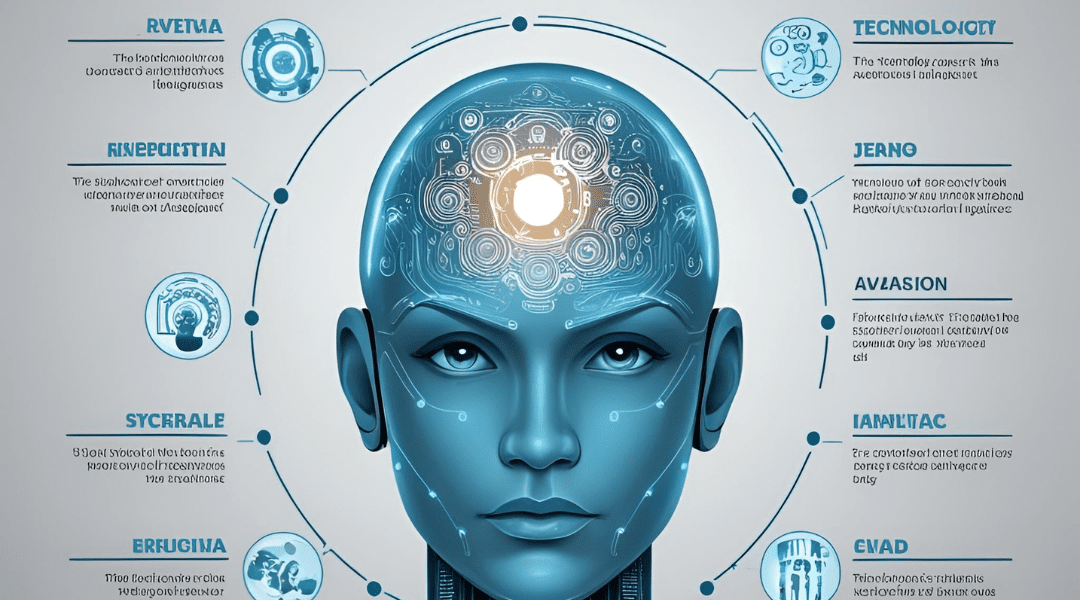The Rise of Technology and Artificial Intelligence: Transforming Our World

Technology and Artificial Intelligence (AI) have become integral parts of modern society, revolutionizing industries, reshaping economies, and altering the way humans interact with the world. The rapid advancement in AI, machine learning, robotics, and automation has sparked both optimism and concern regarding the future of work, ethics, and global economic structures. This article delves into the impact of AI and technological evolution on different aspects of human life, exploring its benefits, challenges, and future implications.
1. The Evolution of AI and Technology
The journey of AI began as a concept in the 1950s when computer scientists sought to create machines that could simulate human intelligence. Over the decades, advancements in computing power, data processing, and algorithms have transformed AI from a theoretical concept into a reality. Today, AI is present in voice assistants like Siri and Alexa, self-driving cars, automated customer service bots, and even in complex healthcare diagnostics.
One of the most significant breakthroughs in AI is deep learning, which allows machines to analyze vast amounts of data and make predictions based on patterns. This has enabled the development of sophisticated applications such as facial recognition, language translation, and personalized recommendations in e-commerce platforms.
2. AI in the Workplace: Automation and Job Market Changes
AI and automation are rapidly reshaping the job market. Many industries, including manufacturing, healthcare, finance, and retail, are leveraging AI-powered tools to enhance efficiency and productivity. Automated assembly lines, robotic process automation (RPA), and AI-driven customer interactions have streamlined operations, reducing costs for businesses.
However, the rise of automation has also led to concerns about job displacement. Jobs that involve repetitive tasks, such as data entry, manufacturing, and logistics, are at risk of being replaced by AI-driven solutions. On the other hand, AI is also creating new job opportunities in fields such as AI development, cybersecurity, and data analysis. To remain competitive in the evolving job market, workers must adapt by acquiring skills in technology, programming, and problem-solving.
3. The Role of AI in Healthcare
The healthcare industry has witnessed remarkable advancements due to AI and technology. AI-powered tools are being used to diagnose diseases, analyze medical images, and develop personalized treatment plans. Machine learning algorithms can detect patterns in medical data, enabling early diagnosis of conditions like cancer, heart disease, and neurological disorders.
Telemedicine, powered by AI, has made healthcare more accessible, allowing patients to consult doctors remotely. Additionally, robotic surgeries and AI-assisted drug development have improved the precision and effectiveness of medical treatments. Despite these advancements, ethical concerns regarding patient data privacy and AI decision-making in healthcare continue to be debated.
4. AI in Education: Transforming Learning
AI is playing a crucial role in revolutionizing the education sector. With AI-driven platforms, students can receive personalized learning experiences tailored to their strengths and weaknesses. Adaptive learning technology can analyze a student’s progress and provide customized study materials, ensuring a more effective learning process.
Moreover, AI-powered chatbots and virtual tutors are assisting students with queries, reducing the burden on teachers. However, concerns regarding data security and the potential reduction in human interaction in education need to be addressed as AI continues to be integrated into learning environments.
5. Ethical and Privacy Concerns in AI
Despite the numerous benefits of AI, there are several ethical and privacy challenges that need to be addressed. AI systems rely on vast amounts of data, raising concerns about data security and privacy breaches. The misuse of AI in surveillance, deepfake technology, and biased decision-making in hiring or law enforcement poses significant ethical dilemmas.
Furthermore, there is an ongoing debate about AI’s decision-making capabilities and accountability. If an AI-driven system makes an error, determining who is responsible remains a complex issue. Governments and organizations must establish regulations to ensure the ethical and responsible use of AI technologies.
6. AI and the Future of Human Interaction
AI has changed the way people interact with technology and each other. Social media algorithms influence user behavior, while AI-driven virtual assistants make daily tasks more convenient. The integration of AI in customer service, content creation, and even companionship through AI chatbots is redefining human interactions.
However, there is a growing concern that excessive reliance on AI-driven communication may reduce human empathy and emotional intelligence. Striking a balance between AI convenience and genuine human interaction is crucial to maintaining a socially connected society.
7. The Future of AI: Opportunities and Challenges
The future of AI is filled with immense possibilities. From AI-powered smart cities and autonomous transportation to breakthroughs in scientific research and space exploration, AI has the potential to revolutionize multiple domains. Quantum computing and AI collaboration could solve some of humanity’s most pressing problems, including climate change and disease prevention.
However, as AI continues to evolve, challenges such as job displacement, security risks, and ethical concerns must be addressed. Governments, businesses, and individuals must work together to ensure that AI is developed and implemented responsibly.
Conclusion
Technology and Artificial Intelligence have undoubtedly transformed the world, offering unprecedented opportunities for progress and efficiency. While AI presents numerous benefits in healthcare, education, business, and daily life, it also raises significant ethical, social, and economic challenges. The key to harnessing the power of AI lies in responsible innovation, continuous learning, and ethical considerations. As AI continues to advance, striking a balance between technological progress and human values will be crucial for a sustainable and inclusive future.




